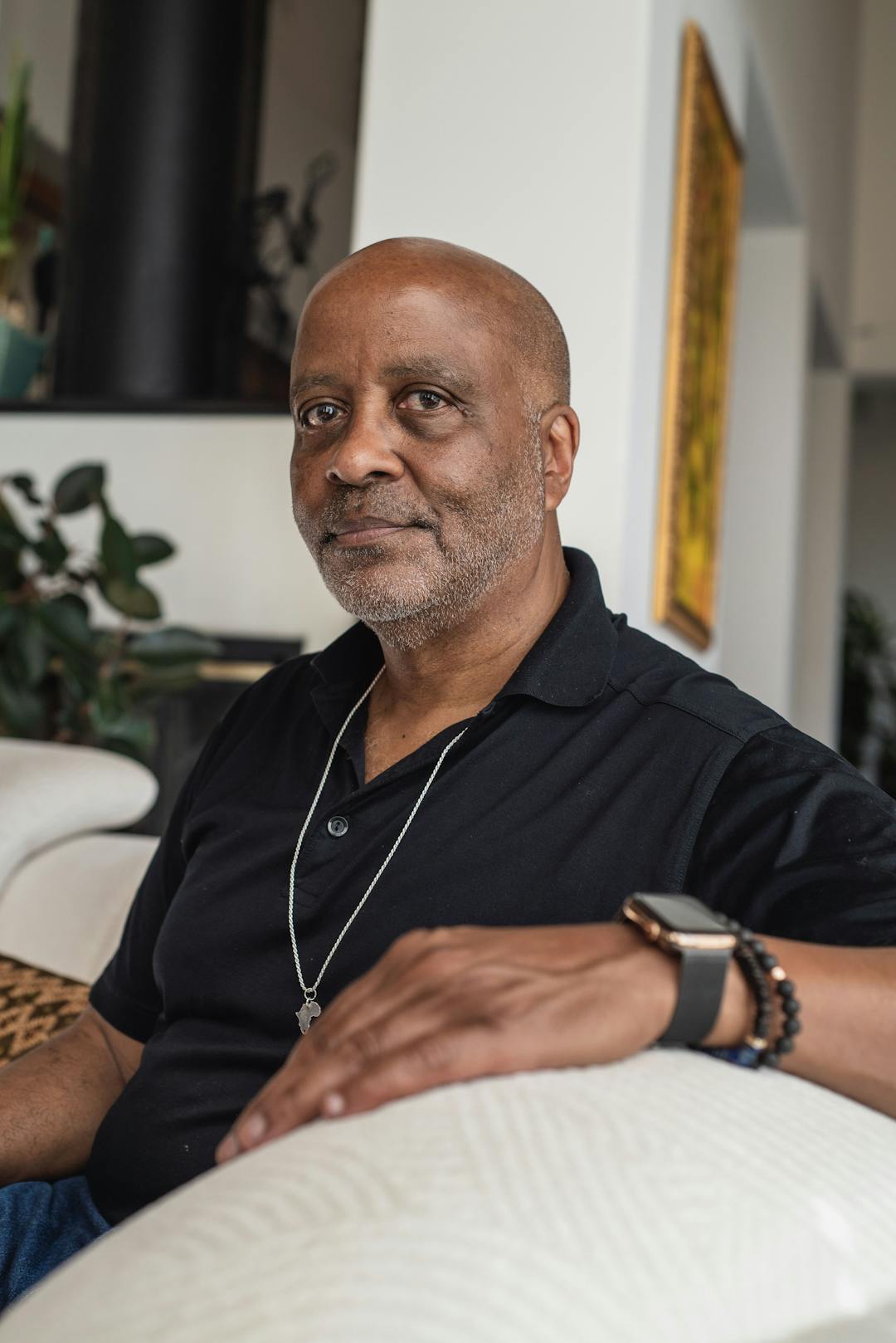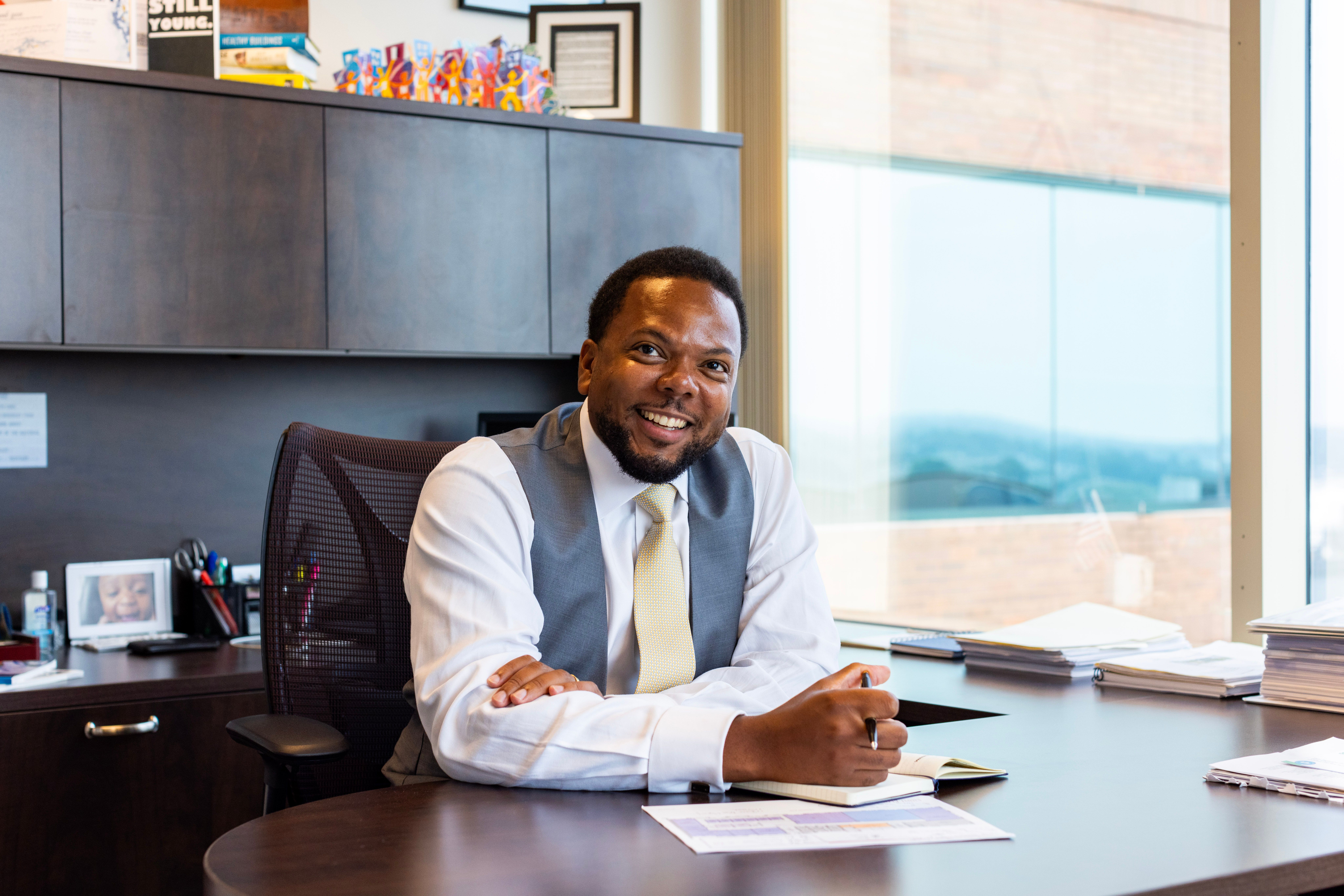
Yves Joseph
RJ Development + Advisors
For Yves Joseph, Co-founder and Principal of RJ Development + Advisors, every new deal is an opportunity to solve a puzzle, meet a challenge, and, above all, make an impact.
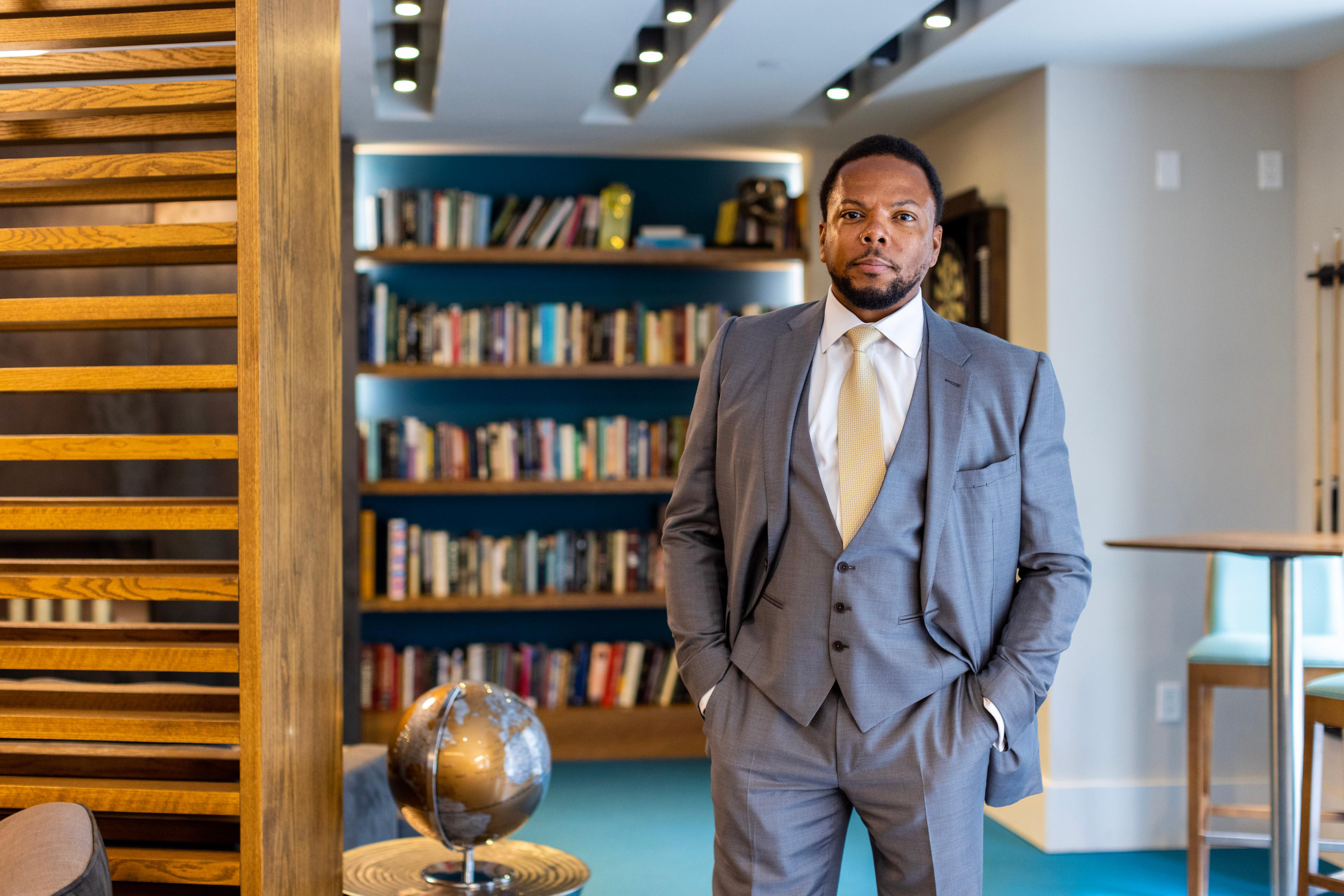
By Patrick Sikes for Commonplace
Can you briefly introduce yourself and your work?
Sure. My name is Yves Joseph and I’m a commercial real estate developer based in New Haven, Connecticut. I’ve been developing real estate for basically my entire career, starting from when I graduated from Harvard as an undergraduate.
Today, I am the Co-founder and principal of a platform called RJ Development + Advisors that was launched in 2017. We are a privately held commercial real estate development company that builds, owns, and operates commercial real estate for our own account. We develop all asset types and we’ve done hotels, Class A office, and a tremendous amount of retail, though currently our pipeline is dominated by multifamily – surprise, surprise – with several hundred units of multifamily housing now in production. And geographically, we're active throughout the northeastern United States, but the lion's share of our pipeline today is in Connecticut.
We also have an advisory services practice, though it has become kind of a legacy business that we’re starting to wind down pretty substantially. We still have a select number of advisory clients where we primarily provide fee development services, but we only do it on a very select basis for strategic relationships and legacy clients.
Can you share a bit about your personal background?
I am native of Chicago, Illinois and California, though for the most part I consider myself to be from Chicago because that's where I spent my formative years.
I did reasonably well in school; I guess you could say I had an affinity for mathematics and was good with numbers at an early age. I had some early academic mentors who really encouraged that pursuit of math in a very deep and meaningful way. However, as math got more esoteric and more complex, it became untethered from reality and it became very difficult for me to understand the point. Although in hindsight, I realize that’s mostly because I gave up around multivariate calculus; at a certain point, math actually becomes extremely applicable and relevant.
However, by moving away from math, I ended up discovering economics in my senior year of high school. I was really impressed by the direct relationship between analytics and mathematics, as well as the practical application of both as a way to understand the economy and business in general. So when I went to Harvard, I decided to major in economics because it was the perfect intersection between the practical aspects of business, commerce, economics, and mathematics – all of which I happened to be good at and had a growing love and passion for. That was really the beginning of my pursuit of this line of work.
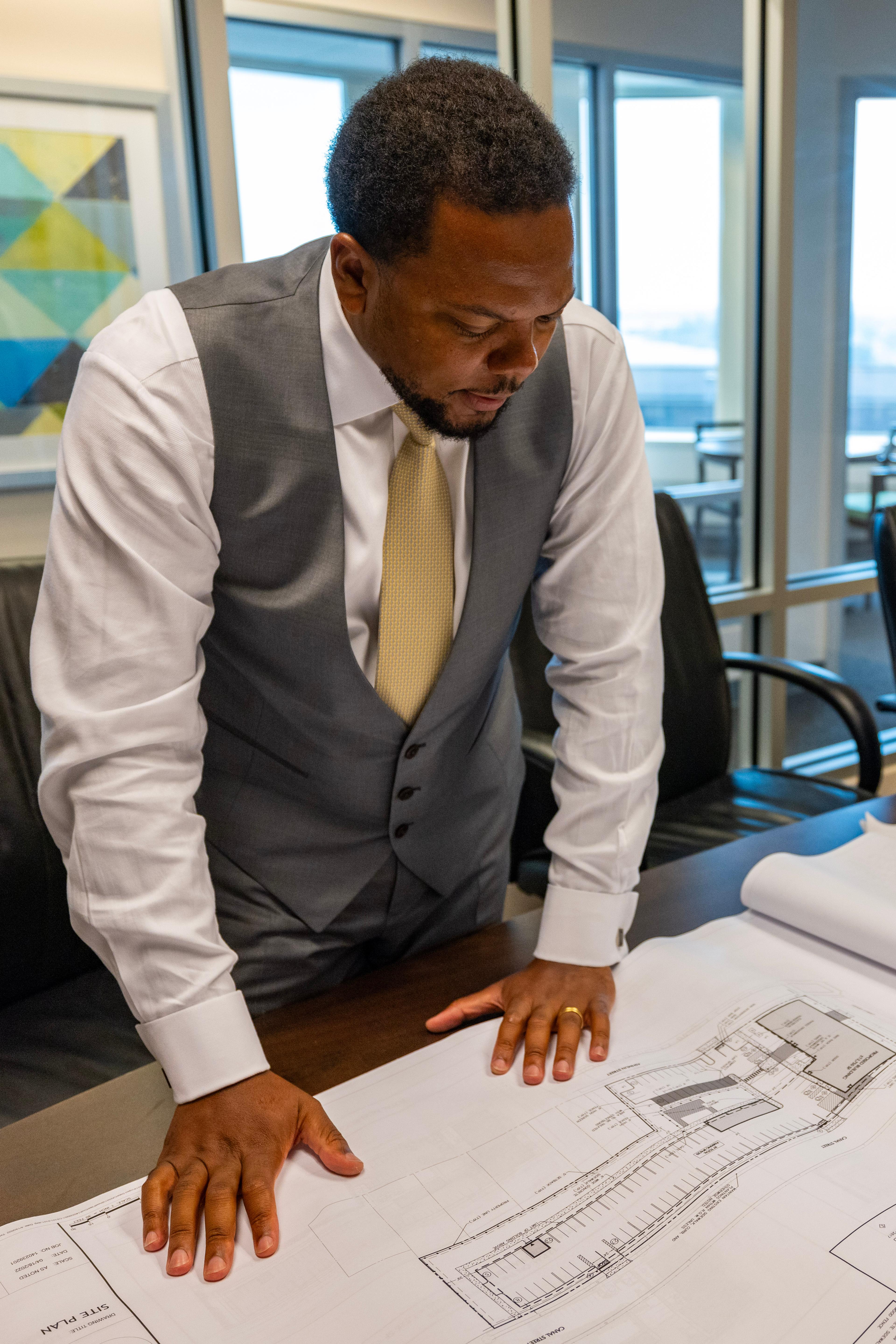
By Patrick Sikes for Commonplace
Can you give an overview of your career and the path you took to get to where you are today?
During my years at Harvard, I took an internship back home in Chicago with A.T. Kearney, a management consulting firm, and I was inspired by the skyline of Downtown Chicago. I was taking the train in every morning that summer and one day I looked up at the big towers that litter the skyline and a question was really impressed upon me: “How did these buildings get here?”
We all understand how a tree grows – seeds, water, sun and over many years or decades that tree will exist, right? But how did these massive skyscrapers get there? Who was involved and what did it take to build it? And most importantly, how can I be a part of that?
I took those questions back to Harvard with me and began to really pursue answers to them. And the more I learned about commercial real estate, development, and construction, the more I realized how interconnected it was with my studies. So I began running after that vision and started selecting courses and internships based on that. I ended up doing an internship with Northern Trust Bank because I quickly realized that you have to understand finance to build commercial real estate and what better way to understand how finance works than to go work inside the machine at a bank? That’s how I started cutting my teeth in the industry.
Then, right after undergrad, I had a very important mentor, Professor Richard Peiser from the Harvard Graduate School of Design (GSD), who took an interest in me and helped me translate the coursework I was completing under his tutelage into an opportunity by guiding me through the landscape of real estate. That’s how I began connecting to professionals and firms in the industry, which ultimately resulted in my first job with Robert Charles Lesser & Co. (RCLCO) out of Bethesda, Maryland, a management consulting firm specializing in commercial real estate. So my first real full time gig out of school involved analyzing properties across the country and all asset types. It was a great, great way to get an entrée into the field and build some depth of expertise across a broad swathe of commercial real estate.
I eventually took a development role with Centerplan, based in Middletown, Connecticut, and that’s where I met my partner, Jason Rudnick, around 2007. Ten years later, we went on to found RJ Development + Advisors and now here we are today.
Can you give me an overview of your company, including the kinds of projects you take on and your approach to development?
This may sound kind of flip, but our approach is to seek profitability and viability. We are asset agnostic and that is a deliberate decision. What we like to do is go for quality deals with a margin of safety, where we can deliver a competitive advantage based on something unique about us.
Over time, many people, particularly institutional capital providers, have challenged that approach and asked me to specialize in one asset class, like housing or hotels. They say that if I do that, they’ll give me access to a huge pool of capital that will allow me to scale my deals nationally or regionally. But I've rejected that system and those kinds of suggestions, maybe to my detriment – though the story is not yet written.
My view has always been that we all know real estate moves in cycles and that asset classes go in and out of favor. My concern is that if I specialize, I could be a master of that asset class, but what do I do when that goes out of favor? Do I go on a long vacation, or am I out of business? And that's why we’ve never really picked a specialization. If you look at our track record over the years, we have been involved with all types of assets – industrial, retail, multifamily, hotels, office. The only thing we haven't really touched is for-sale residential.
"I want to always be busy and I want to always be putting production into place, so I need to be flexible enough to respond to what the market actually demands."
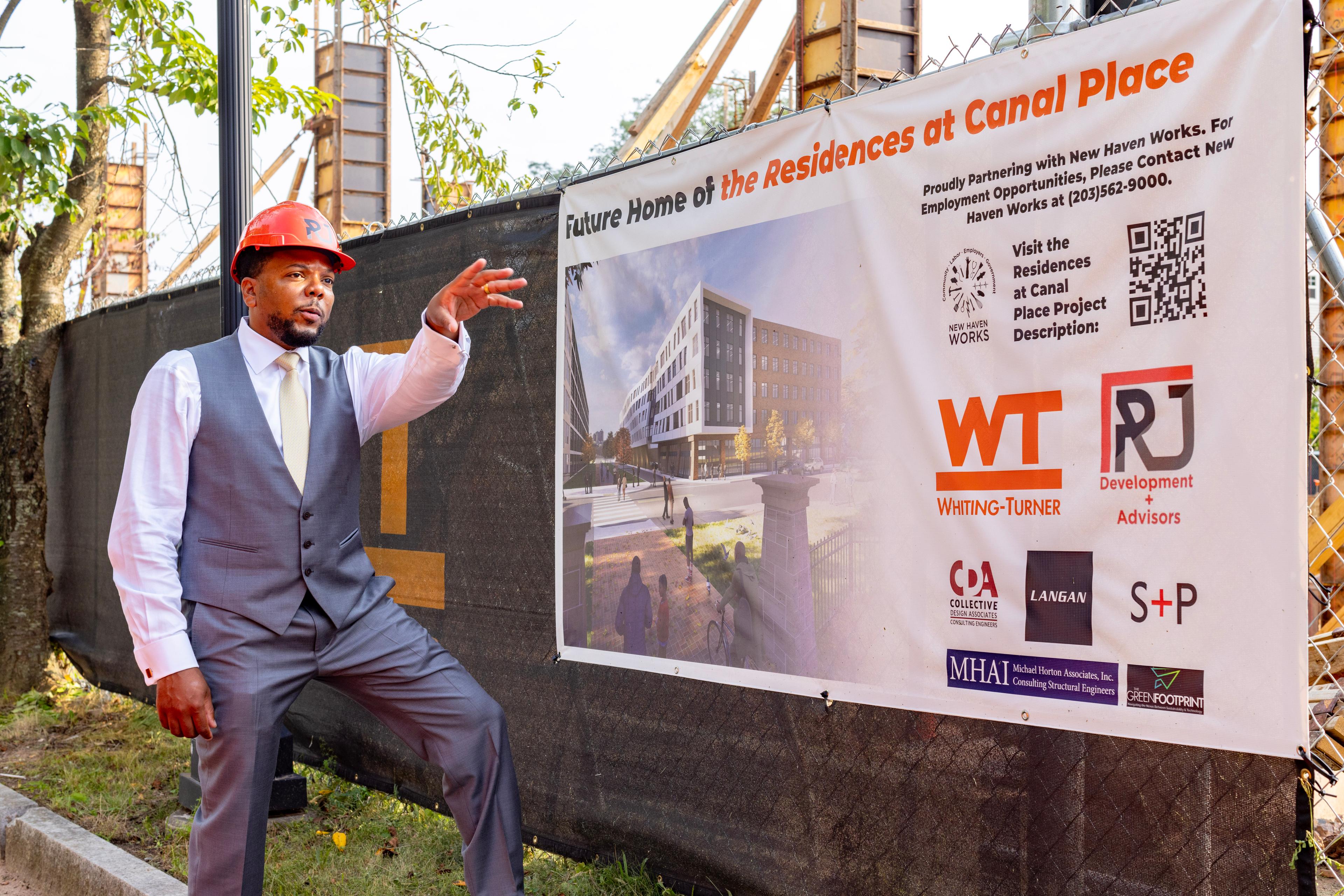
By Patrick Sikes for Commonplace
You mentioned that you’ve never utilized institutional capital, potentially to your detriment. Can you elaborate on that and the topic of accessing financing and capital in general?
Right, so for a long time, I kind of viewed that as a weakness; like a box that you need to check because you're not worthy until you’ve done that – and for all I know, maybe that’s even true. However, as I mentioned, by virtue of not aligning perfectly with institutional capital, we've been able to remain flexible and pursue a business strategy that is atypical and has worked out well for us.
The challenge is that you still need equity, no matter what your strategy is. Fortunately, we have been able to build our equity strategy up brick by brick to the point where we can do our deals without institutional capital. I remember distinctly our first large transaction was a $54 million deal that required $12 million of equity. We raised that equity from high net worth individuals one handshake at a time, one round of golf at a time, one steak dinner at a time. It was arduous and extraordinarily time consuming – really just overwhelmingly inefficient and probably the lowest and worst use of our time in terms of value creation – but we bootstrapped it and we got it done. And as we moved forward, a lot of those high net worths stayed connected to us and the check sizes started to grow.
Over time, we’ve cultivated allies who understand our track record, participate in our growth and evolution, and continue to bet on us. We're now at a point where we're connected to different family offices and funds who are willing to take down large portions of the capital stack, if not entire deals. For example, in the most recent round of transactions, we were able to raise equity for The Beam in New London, which was then the largest opportunity zone investment in the state of Connecticut, and that deal was taken down by just two capital aggregators. And over at our Canal project in New Haven – also an opportunity zone investment – we have just one LP, which is a privately held fund. With these kinds of partners, we’ve been able to remain nimble and flexible and really define our business strategy and trajectory for ourselves.
"The flip side of that coin is scale. We don't have half a billion or a billion dollars of committed capital behind us allowing us to build infrastructure and put thousands of units at a time on the board. It's not what we are, but also maybe it's not what we need to be."
You founded your company in 2017, so you have only really been in operation for six years, two of which were while the world was ending, yet you have managed to build these connections and raise millions of dollars of capital in that short time. What is your secret sauce?
The first thing I'll mention is relationships with a capital R. Jason and I really pride ourselves on relationships and we take it as seriously as any other aspect of the business; we've been cultivating our relationships in some cases for 30 years.
I think it's really about going deep with people and surrounding yourself with the best and brightest, while also doubling down on our own expertise to make sure that we, in fact, are the best and brightest as we represent ourselves to be. That way, when people look under the hood, they find what they're expecting. All of that ultimately translates to performance and execution and we really have executed very expertly over a long period of time, so that now we're kind of wrapped up with folks who believe in our credibility. That's why investors who started off writing half a million dollar checks have since grown that to $2 million, $3 million, and even $5 million checks. And, importantly, these are not passive relationships that just provide funding, they are also a great source of advice and expertise. For many of my capital partners, if I can articulate a problem, then they have likely experienced it and that goes a long way toward allowing us to continue to execute and thrive.
I'll also add that when it comes to expertise, one thing that has served us especially well is understanding our markets. As much as I desire and intend to expand our geographic footprint, we have really only done deals in markets we know and know holistically at that. Whether we’re talking about the political landscape, financial landscape, macro or microeconomic landscape, or the landscape of competitors and contractors, we have decades of experience with folks across all these categories. And I think that is a competitive advantage that allows us to execute through very challenging circumstances, as well as understand and articulate why a particular opportunity is special or has a solid margin of safety.
And when you put all that in the context of our focus on P3's, it kind of becomes that secret sauce. Without our deep relationships and links to the community in places we do business, we wouldn’t be able to access opportunities or perhaps even have the insight to recognize great opportunities. And that is actually something that gives me pause. How would I go about doing a deal in Virginia, for example? I would have to start from scratch, I guess; it can certainly be done, but there's a lot of ground that I would have to cover.
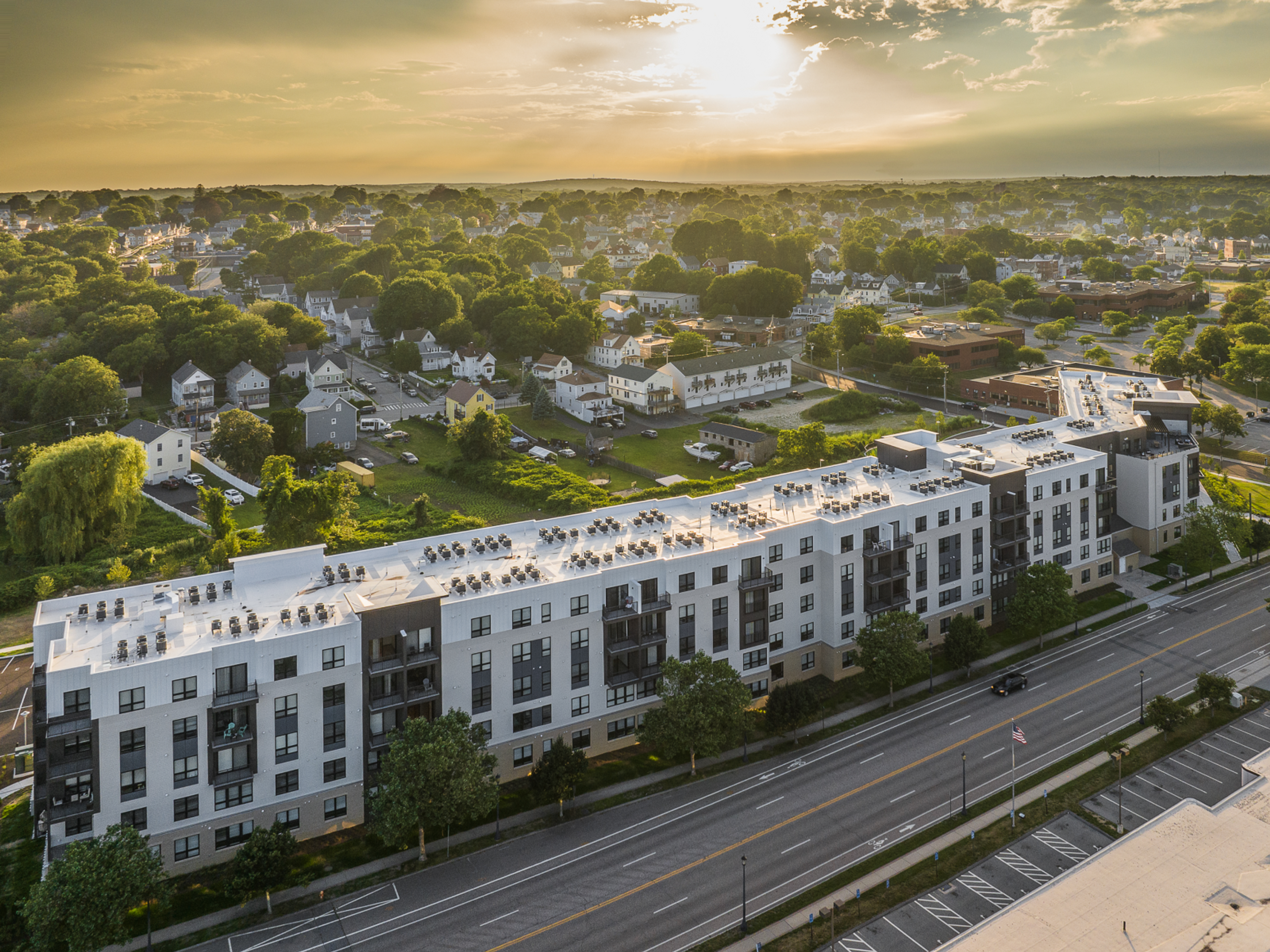
The Beam in New London, CT
Courtesy of RJ Development + Advisors
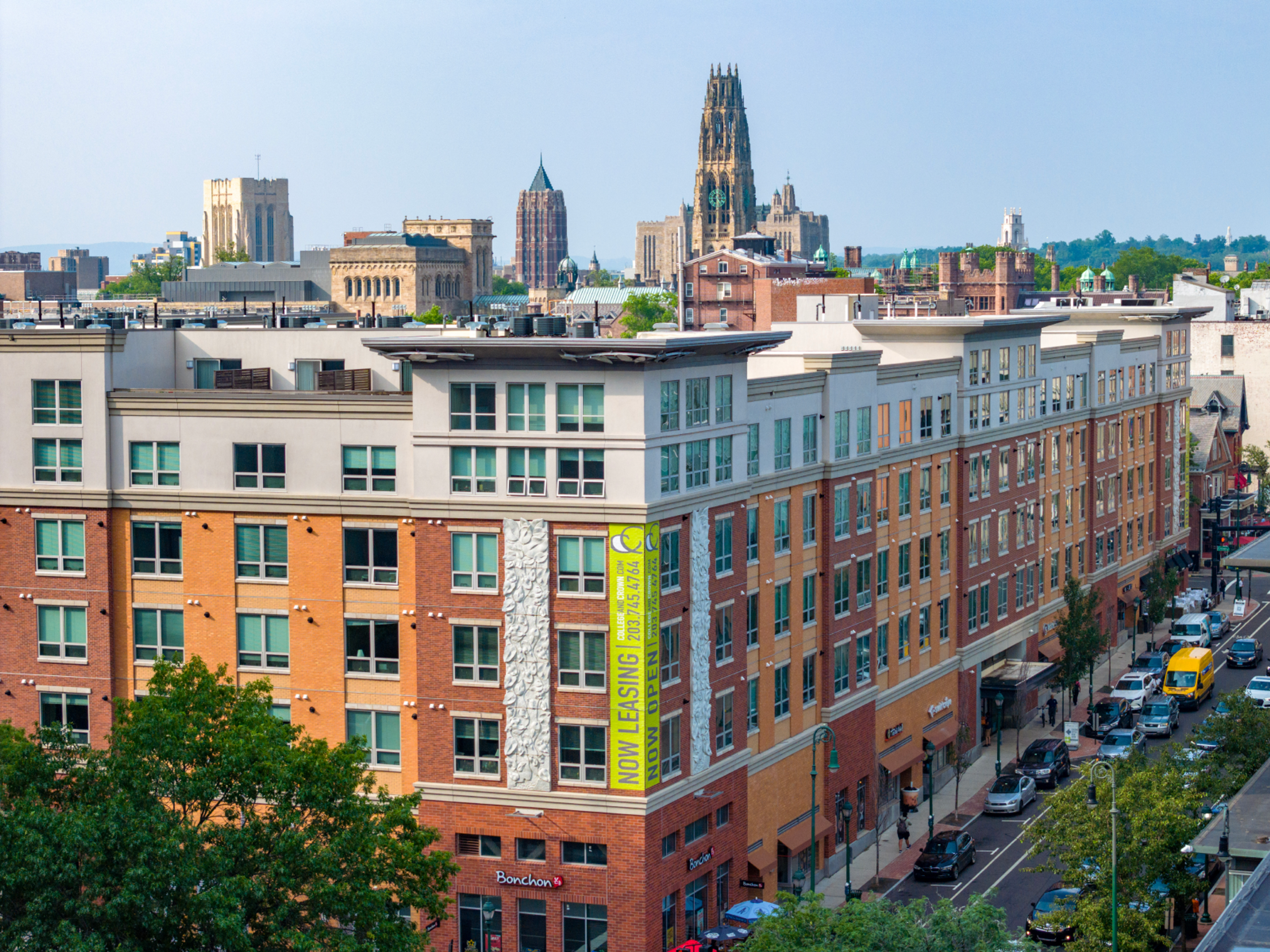
College & Crown in New Haven, CT
By Patrick Sikes for Commonplace
Can you share any specific strategies or approaches that worked for you as you’ve worked to develop your capital relationships?
We’ve built up and cultivated our equity relationships over time pretty organically. There's not really a formula; you just pick up capital partners along the way as you meet folks and people start to take notice of what you're doing. The specific people you meet are somewhat unique to your travels as you go through different networks and organizations, whether they're affiliated with your school, or maybe specific organizations like REEC, which has been invaluable to me.
Generally, the way it works is when you first meet an investor, maybe they'll first inquire about your work very passively and that small discussion might turn into a small relationship. Keep in mind though that a small relationship over 10 years can become a very meaningful relationship. As you spend time building those connections up one at a time, some of those people tell other people and oftentimes the person they introduce you to can write an even bigger check than they did. Eventually, you start to create a pool of these folks who become reliable partners across your deals as you work through an execution strategy.
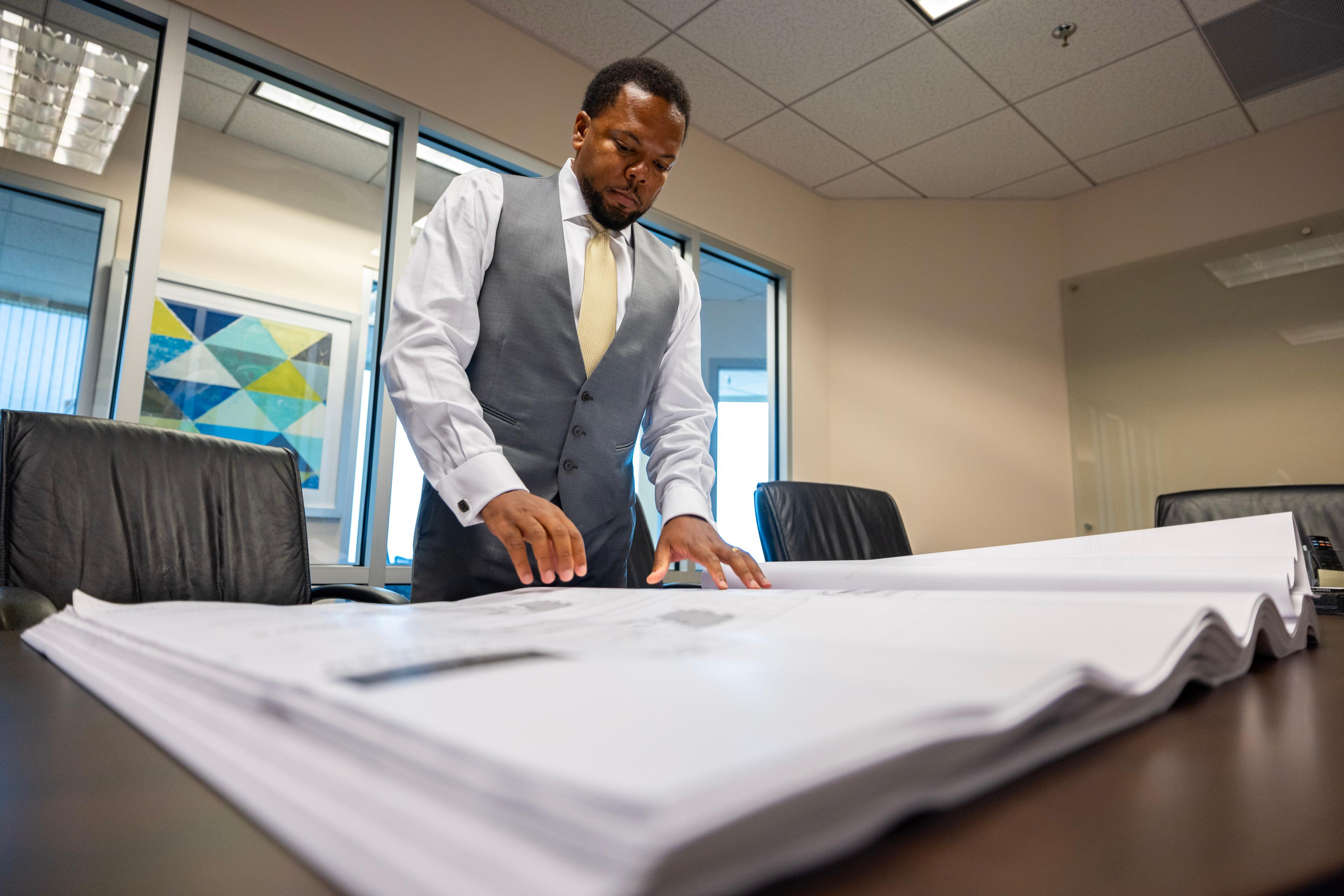
By Patrick Sikes for Commonplace
Given your unique strategy and approach to capital, what does your current pipeline look like and what are you working on today?
We have a robust pipeline of real estate that we’re executing throughout the region; I haven't done the exact math, but I think at this point our pipeline is just under a billion dollars in total development costs that we'll be investing over the next five to seven years. This only includes deals in our hard contract pipeline, meaning that they are under contract, under control, under construction, or currently stabilizing. It wasn't straightforward putting all of that into place. It took time, effort, and, candidly, a lot of luck, so I’m really grateful for that.
Within the pipeline, we have no less than 500 units of market rate housing, as well as some larger mixed-use developments, including multiple office buildings, mixed-income housing, fresh food markets, and even some art spaces. So I would say our portfolio is reasonably diversified, but, as I mentioned, there is a lot of housing.
In terms of what we’re actively working on, we’re currently stabilizing The Beam, which has 203 units of market rate housing; we received the certificate of occupancy there in April of this year. We also just broke ground two months ago on The Residences at Canal, a 176-unit mixed-income residential development where a full third of the units will be affordable housing units.
That’s pretty impressive! Of all those deals you’re working on, is there one in particular that you are most excited about and want to highlight?
I’m not really sure – I'm generally most excited about the current deal, you know? In this business, I think you have to be most excited about the current deal because it's going to take so much out of you to get it done. It's hard to be looking in the rearview mirror and being successful in what we do.
So, I’ll just talk about the 176-unit housing development in New Haven because that’s the one that is currently under construction. What excites me about that project is that it is a sponsor-driven mixed-income development; it didn't have to be mixed-income; we specifically wanted it to be.
Behind that decision is our mission to not only enhance these communities through development, but to also ensure that incumbent populations in these communities are able to participate in the value creation and enjoy the places that we're creating. Ultimately, when this building is standing, I know that the project won’t be a pure gentrifier. Instead, the residents of the neighborhood of Newhallville, some of whom are folks who have been in the area for multiple generations, will be living in this building and calling it home.
I'm proud of that and I truly hope it is our most successful project. It has been a very difficult transaction to execute for many reasons, but you know what they say: if it's not difficult, it's probably not worth doing.
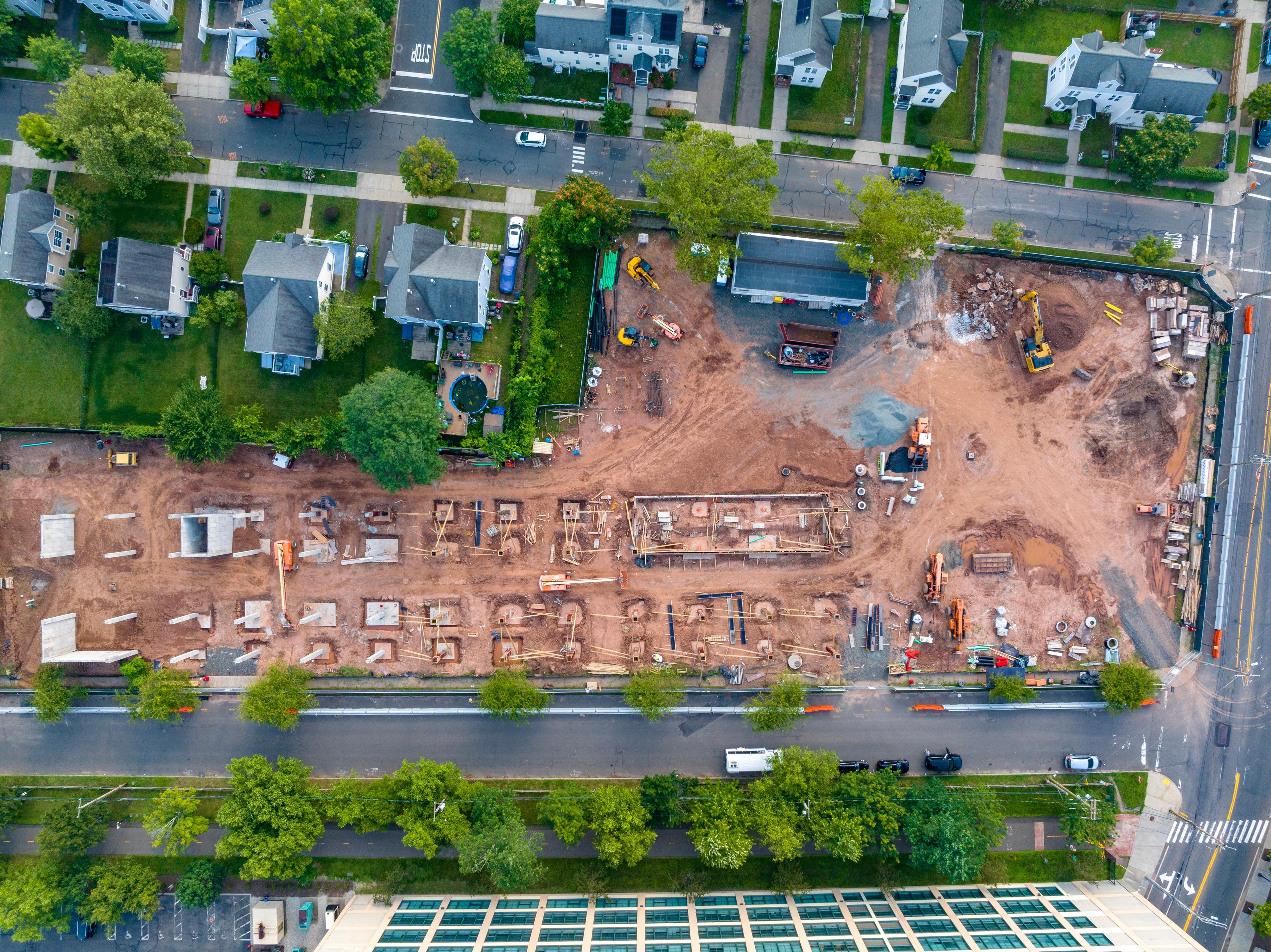
An overhead view of The Residences at Canal project in New Haven
By Patrick Sikes for Commonplace
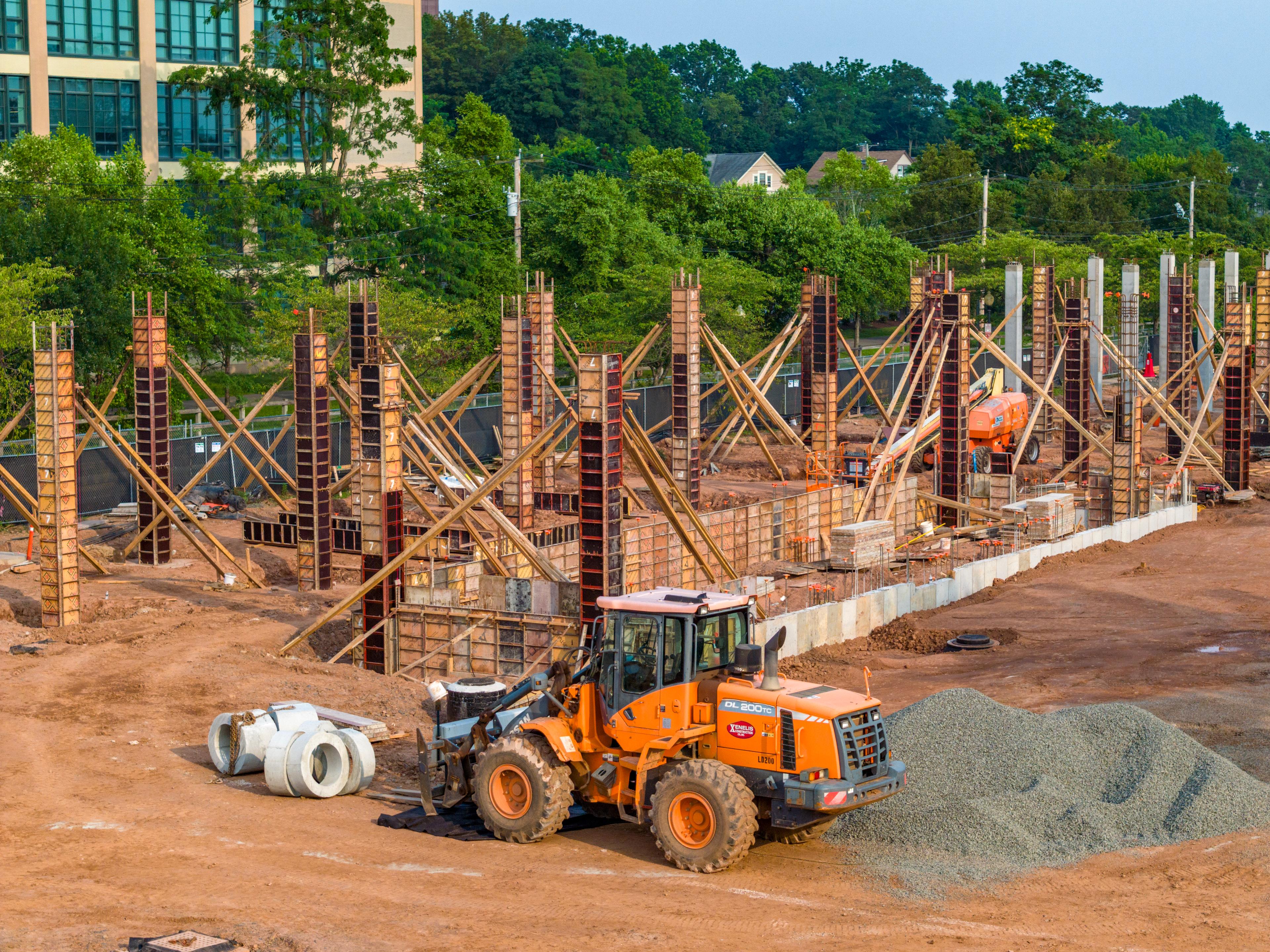
When construction is complete, The Residences at Canal will have 176 units of mixed-income housing
Outside of standard financial metrics and specific asset classes, are there any specific criteria you’re looking for when you are considering taking on a deal?
This might require a bit of explanation, but I'm much less concerned with how difficult, complex, or arduous a project is than I am with how much diverse support it has across the community that it will impact. I believe that projects that are part of initiatives being pushed by a city and its leadership with the support of the impacted population are projects that will be successful almost irrespective of how challenging they might be. Those projects are also the most rewarding and exciting projects to be involved in because, when you have alignment, enthusiasm, and buy-in, that's really when unorthodox solutions can be implemented and major transformations can happen. It’s only possible when all sides are collaborating to solve problems, rather than fighting and undermining each other.
I've been involved in deals where we've tried to get approval for developments that the city, town, and the community didn't want; in some cases, we’ve even actually gotten those deals approved. The contention, the headache, the animosity, and the ill will that follows us is just not worth it.
"I'm mainly looking for opportunities where there’s a very clear need that's aligned with the municipal leadership and the affected population’s vision for their community. That is really what I think of as the key ingredient for successful public private partnerships and you can see that reflected in our pipeline today, which overwhelmingly consists of P3’s."
What do you think about the concept of impact in relation to real estate and how is that reflected in the public-private partnerships that you’re pursuing?
Real estate is overwhelmingly impactful. Everybody has to deal with it; you can't avoid it and live on this planet – well, maybe if you were to go into the Amazon and avoid civilization entirely. You really can't function as a society without it and whenever people are constructing new real estate it is going to affect the entire community. That's why the decisions around it are so highly scrutinized and rightfully so, in my opinion. But if I had to reduce that massive impact down to something that I can actually control and influence, there are three pillars of impact that I would focus on.
The first is employment. We employ a lot of people when we construct these buildings and operating it as a going concern creates meaningful full time employment opportunities. One of my priorities is to direct those opportunities to communities of color, particularly when developing in those communities. I want to make sure that the incumbent populations are participating in the economic activity we're stimulating.
The second pillar is wealth creation. I think there's an obvious need to create wealth in minority communities and these transactions are vehicles for wealth creation, not only for myself as a sponsor, but for the contractors, service providers, investors, and all the other people involved in a project.
And finally, there's the physical impact of placemaking. I see it as an important responsibility to consider development from an artistic standpoint and think carefully about the aesthetic you’re leaving behind as a legacy when you're transforming a community, a skyline, or even just someone's walk to work. And going beyond just the look and feel of a place, it is incredibly important to make sure that the legacy left by our assets is one of inclusion, so that, again, incumbent populations, minority communities, Black communities can participate in the places we’re creating. That means we have to take care not to displace the folks who are there, while creating an amenity that they can enjoy.
Those are my three pillars of impact and I consider them across every asset that I work with. Now, those three pillars don't necessarily drive my investment decisions. Certainly, we have to make sure that our business is being done responsibly, but at the same time we also have to make sure that it’s viable and that it's going to generate returns to both ourselves and our partners. However, I don't think that there is necessarily an incongruence or incompatibility between profitability and achieving impact through these pillars.
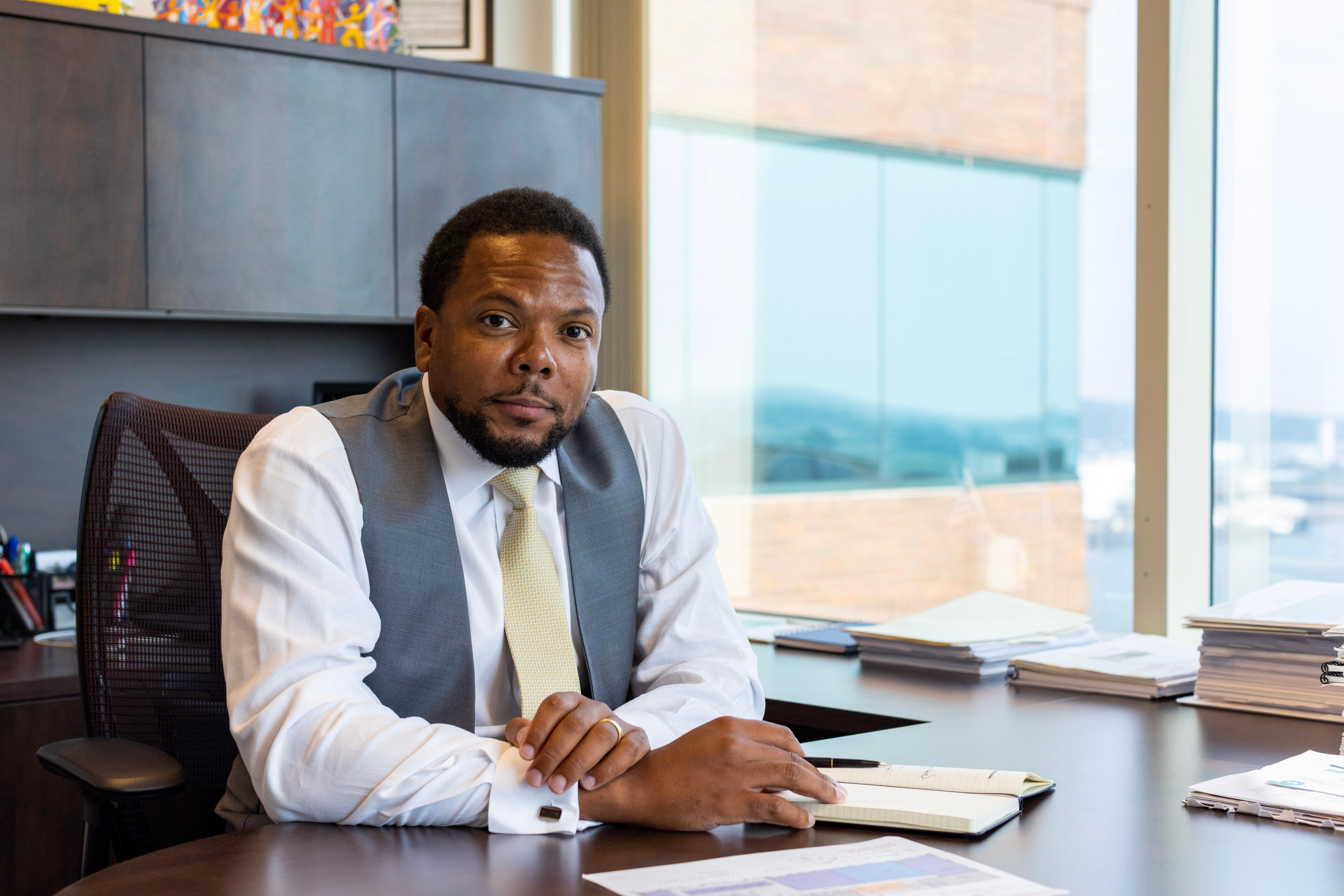
By Patrick Sikes for Commonplace
There may not be an incompatibility between profitability and impact, but do you believe there is a tension between the two? And if so, what are your thoughts about pursuing your pillars of impact, despite that tension?
Well, there's absolutely a tension, but all that means is that achieving both objectives – that double bottom line, if you will – requires intentionality and extra work. In some cases, people may not be up for it and in other cases, people may be all in for it. Personally, I just think it's necessary and a part of the responsibility of the work. The way I extract my own sense of purpose and satisfaction in these deals is by solving those problems and striking that balance.
The mixed-income deal we have under construction is a perfect example of achieving that double bottom line: it’s a deal that will be financially viable and will do well economically, but it's also going to achieve all three of those pillars of impact, unequivocally. Was there tension between those three pillars and financial returns? Absolutely. But we solved those by cultivating allies, bringing in partners, and getting buy-in to make an economic contribution to a shared mission. That involved nudging the municipality to do things that they may not otherwise want to do and educating them on the value that will accrue to them, which ultimately resulted in things like favorable tax treatments or grant proceeds and subsidies to help the project pencil. Through that financial support, the community will get a project that meets their priorities and objectives and we’ll get a project that we can be proud of, while also generating returns to our shareholders.
What drives you and motivates you to do what you do?
I’m a deal junkie, you know? You could say I'm a recovering dealmaker.
No, but really I absolutely love this. I love it. My wife always teases me because I always complain to her that this will be the last one – maybe the deal just went sideways, the bank changed its mind, or the costs blew up, whatever the crisis of the day is – and she'll say, “Yeah, right. You love this. This is what you get up for.” And she's absolutely right.
I mean, it's not easy; there are absolutely easier ways to make money, and this business will drive you to the shrink, but ultimately when I chose real estate development, or rather when it chose me, one of the things I wanted was to invest my time and my life into a discipline that you can't really ever master. And I'll say that real estate development has made good on that promise.
Real estate is so dynamic that you cannot possibly be bored. I didn't want to just go make widgets because, no matter how much money I made, I figured I'd get bored by the time the 10,000th widget came off the assembly line. I wouldn't want to look at the 10,001st widget. By comparison, real estate draws on so many different disciplines and types of expertise, whether it be analytics, interpersonal skills, politics, design, aesthetics et cetera. You’re using both left brain and right brain and nothing is ever the same. That’s what keeps me coming back.
And then of course there’s the satisfaction of achievement, right?
"There is a conclusion to every deal and you get the joy of seeing people living, working, shopping, playing in the end result. You see the impact you're making on their lives, as well as the lives of the folks who helped you execute the vision. I can only go so many weeks or months after the conclusion of a deal before I need to get into another big, audacious goal and see if we can't push another one over the hill."
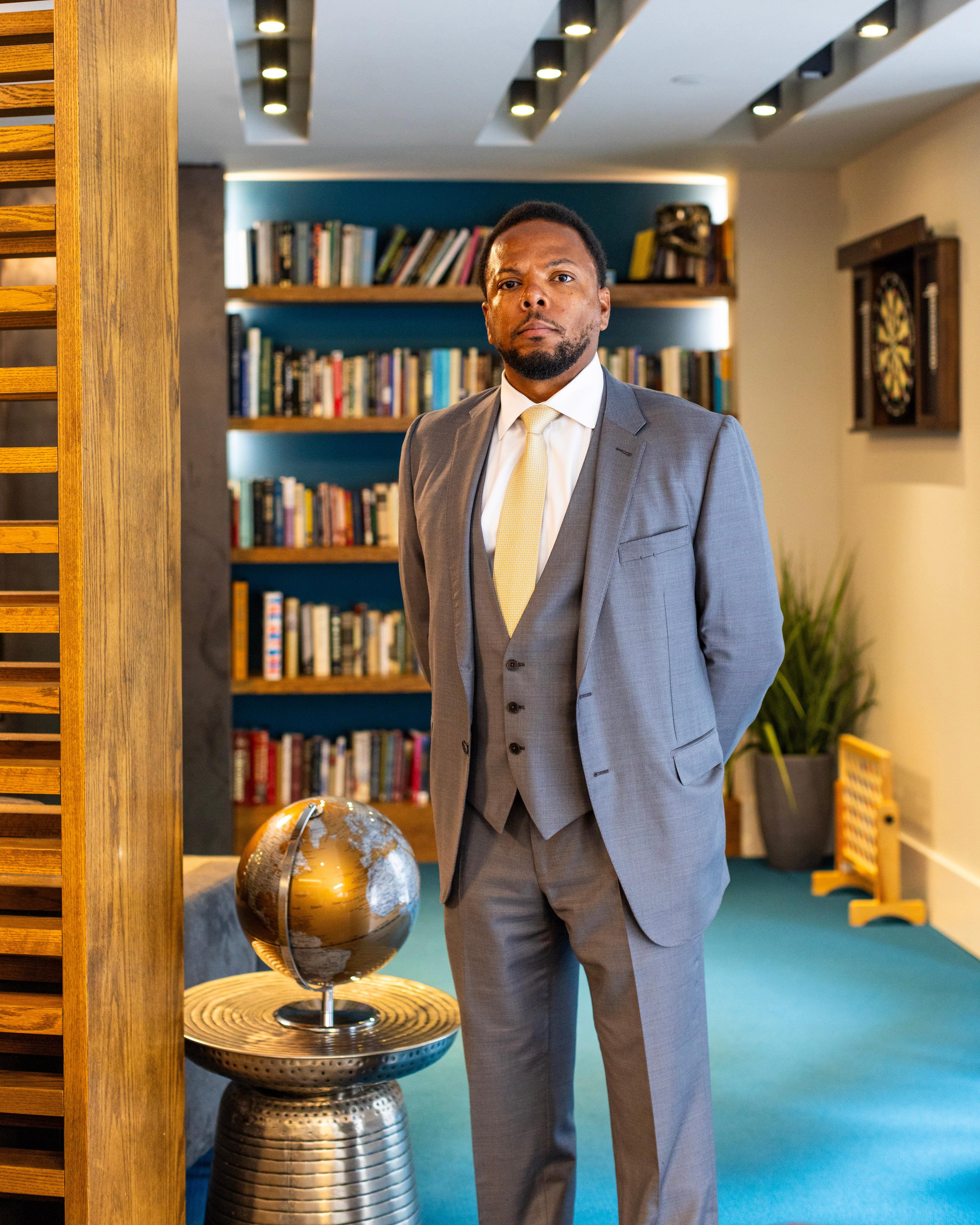
By Patrick Sikes for Commonplace
Who has inspired you over the course of your career? Who has helped you along the way?
I've had an overwhelming number of mentors and sponsors who have invested in me over my career. I already mentioned Richard Peiser, but I can't start listing names because it'll be too long and I’ll miss somebody – I’ll probably miss a lot of somebodies.
I’ll just say that you don't get anywhere alone. You don't get out of the starting blocks alone. You don't even get to the starting gates alone. Anything I’ve been able to do has been on the shoulders of all these different individuals, bosses, partners, teachers, friends, and family that have really invested in me very graciously and many times without the expectation of any return.
I’m so grateful for all of their support and it’s why mentorship is so important to me. I spend as much of my time as I can trying to help others in different stages of their career actualize themselves because so many people have helped me on my journey.
What legacy do you hope to leave?
I don't think about things in those terms, per se. I really do believe that we are servants and we’re here to utilize our skills, resources, and talents to give back, so it's not really about me.
What I hope to achieve is to impact lives, to employ people, and to make sure that we're delivering excellent projects everywhere we go. I don’t want to involve myself in any average deal; I want to do deals that can speak for themselves, stand the test of time, and be appreciated as something of extremely high quality. And to the extent that I can create a few more wealthy people and maybe contribute a little bit of wealth to myself along the way, that would be the definition of success for me.

Yves Joseph
RJ Development + Advisors
